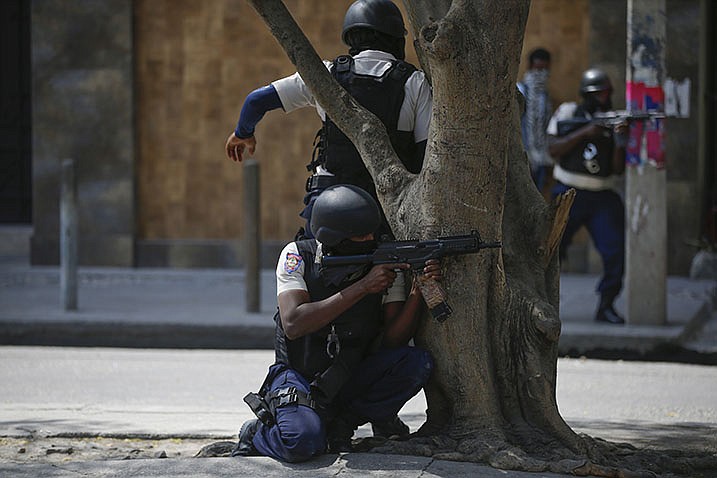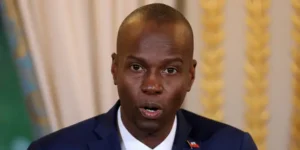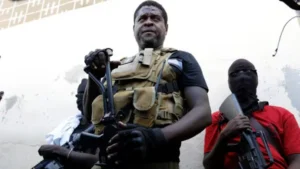
In the heart of the Caribbean, amidst azure seas and vibrant cultures, lies a nation plagued by perpetual turmoil – Haiti. As the world turns its gaze towards this island nation, what unfolds is not just a narrative of political upheaval or economic strife, but a tragic saga of resilience battling against the shadows of despair.

At the core of Haiti’s recent woes lies the assassination of its former president, Jovenel Moïse. His death, a seismic event in Haitian history, unveiled the deep-seated fractures within the nation’s political landscape. Born on June 26, 1968, in Trou-du-Nord, Moïse emerged as a symbol of hope, promising to steer Haiti away from corruption and instability. However, his tenure was marred by allegations of authoritarianism and economic mismanagement, further exacerbating the country’s woes.
The roots of Haiti’s current predicament delve deep into its tumultuous history. Once hailed as the first black-led republic following a successful slave revolt, Haiti has grappled with a legacy of colonial exploitation, political instability, and natural disasters. Decades of dictatorship, coups, and foreign intervention have left scars that continue to haunt the nation.
Central to Haiti’s turmoil are the notorious gangs that wield power in the vacuum of governance. Gangs like G9 Family and Allies, armed to the teeth and fueled by desperation, have become de facto rulers of impoverished neighborhoods. Their origins trace back to a complex web of political patronage, economic inequality, and social exclusion. Leaders like Jimmy Cherizier, known as “Barbecue,” rose from the ashes of poverty to commandeer forces that terrorize communities and hold authorities at bay.

As Haiti grapples with the specter of chaos, the international community stands at a crossroads. Calls for intervention echo across diplomatic corridors, but the path forward remains fraught with challenges. The notion of another occupation, reminiscent of Haiti’s tumultuous past, evokes apprehension and skepticism. Yet, the urgency of restoring order demands decisive action.
However, the question remains – should the international community impose its will, or should Haiti chart its own course? The principle of sovereignty looms large, reminding the world that the fate of Haiti rests ultimately in the hands of its people. While external support is crucial, it must be guided by Haitian voices and aspirations.
The path to redemption for Haiti is arduous, but not insurmountable. It requires a concerted effort to address root causes, from systemic corruption to socio-economic disparities. It demands a commitment to strengthening institutions, promoting justice, and fostering inclusive governance. Above all, it necessitates solidarity – both within Haiti and beyond its borders.
Haiti’s cry for redemption reverberates across the globe, reminding us of our collective responsibility to stand with the oppressed and marginalized. It is a call to action that transcends borders and ideologies, a testament to the resilience of the human spirit in the face of adversity.
As the world bears witness to Haiti’s struggle, let us not look away. Let us instead extend a hand of solidarity, offering hope where there is despair, and light where there is darkness. For in Haiti’s redemption lies a beacon of hope for a better tomorrow – not just for the island nation, but for humanity as a whole.





